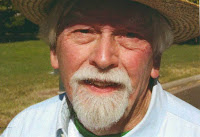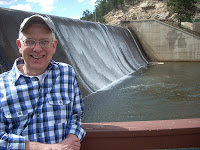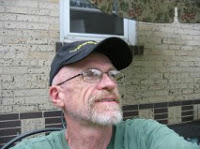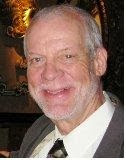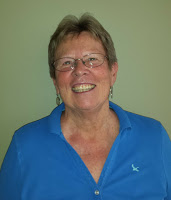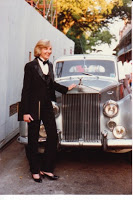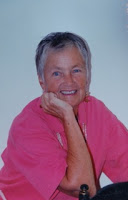While thinking about the word “Moving” I find myself drawn to
emotionally moving experiences more than physically moving from city to
city. One of the most moving experiences
of my life came about in 1986. Here are
some of the events leading up to it:
In 1980 I was living in Denver, Colorado. February of that year was the initial meeting
of PFLAG Denver that I attended and the first meeting of several parents who
were soon thereafter to become dear friends.
I have already written a story for this group about the beginnings of
PFLAG and the events in 1984 that led to the formation of the 140-voice PFLAG
Festival Chorus that sang for the national convention in Denver, which was the
first time that I had conducted in 16 years since being fired from the church.
Today’s story is about the women singing in that chorus who
wanted to continue to sing together, and became the Denver Women’s Chorus. Immediately following the PFLAG Festival
Chorus, the 70 women decided to continue rehearsing at St. Paul’s UMC in
Capitol Hill. Naturally, the very first
performance of this new DWC was at a PFLAG meeting in December with Christmas
songs.
Then came the big night — our very first concert as a women’s
chorus, which we held at North High School auditorium. This was exciting stuff!
We got Jane Vennard to be our MC. Jane is the sister of Dottie Lamm, who was
married to the Governor of Colorado, Dick Lamm.
Jane had been married to a gay man at one time, so she was a member of
PFLAG, and we had an “in” at the governor’s mansion, which was very neat.
Leading up to this concert, one of the things that we talked
about in rehearsals was that when you sing, you are not to pronounce the letter
“R” in a song. For instance, the word
“mother” would be “mothuh” and “father” would be “fathuh”, etc, etc.
Well, Judith and I went to Laguna Beach, California, to visit
Bishop Mel Wheatley and his wife Lucile for a few days. We stayed at a hotel right on the ocean and
watched the seagulls flying by. When we
got back to rehearsal, I told the chorus that one of the seagulls flying by was
singing, “I enjoy being a gull.” Would
you believe that we actually sang that song at that North High concert, and one
of the chorus members dressed up all frilly and danced while we were singing
it. It was actually tongue in cheek.
Anyway, after the concert we were so high and so excited that
we had a big cast party over at the home of one of the singers whose name was
Susan. Jane Vennard was dancing on the
piano bench. We were all dancing so much
that the old North Denver house was actually shaking, and I remember forming a
long line and dancing out into the yard singing “I Heard It Through the
Grapevine.”
Later came the Paramount Theater concert with Barbra Higbie
as the special guest. One of Judith’s
friends brought a straight male friend with him, and of course, this was the
first gay concert he had ever been to, and he asked John, “Why do they sing?”
We tried to answer that question first by saying that it’s
the title of a Holly Near song, “We are singing for our lives.” Then Judith reminded me of this saying: “A bird does not sing because it has an
answer. It sings because it has a
song.” And I said that gay and lesbian
people have always had a song, but the tragedy of it is we have never been able
to sing it before, and the beauty of it is that now we can!
At the end of that Paramount concert Judith and I got to ride
to the cast party at the Hilton Hotel downtown in one of those horse-drawn
carriages with Barbara Higbie and her partner.
That was a blast.
Then came our first GALA Choruses Festival in
Minneapolis! The Gay and Lesbian
Association of Choruses had formed a few years earlier from its beginnings in
San Francisco to several gay men’s choruses around the country, and they had
had their first choral festival in New York City. This was their second time to get together to
sing. We were the only women’s chorus
there, along with 16 gay men’s choruses.
We boarded the plane in Denver, and as we attained cruising
altitude at about 30,000 feet, Judith and I went up and down the aisle passing
out a quote for each member to keep. It
read like this: “Years from now, when
you are old and grey, you will be able to look back and say that ONCE in your
life you gave EVERYTHING you had for justice.”
Soon we were on the stage at Orchestra Hall in downtown
Minneapolis performing to a sold-out crowd, when Suzanne Pierson was singing a
solo on a song that she had written, “No Child of Mine,” and she forgot the
words. The chorus came in with her and
saved her. So while our performance as a
chorus may not have been perfect, still, afterwards when we walked into a
restaurant on the downtown mall in Minneapolis, we would get a standing ovation
from the men singers who were sitting at tables in that restaurant, and they
would say, “Oh, the Brahms, Oh, the Brahms.”
They evidently loved the Brahms numbers that we sang. And they really appreciated our being there.
But the final night in Minneapolis was the piece de
resistance. We were on stage with all of
the men’s choruses, about 1,000 singers as I remember, and there was an
orchestra on the floor in front of the stage and they had hired Philip Brunelle
to conduct and we were singing a commissioned work by John David Earnest called
“Jubilation.” Woah! Unbelievable highlight!
After the concert, some of the members were so excited that
they actually JUMPED off the risers rather than stepping down. And then we ALL went out into the plaza
outside the hall and, as one member later said, we “sang to the heavens what
the hall would not contain.” Close to
1,000 of us standing there singing and singing and singing, every song we could
think of.
That was moving! That was the highlight
of my life to that time. And most of us
returned to work in Denver and could not even tell people where we had been
because we were still not out, for fear of losing our jobs and the support of
our families and friends.
Times have changed in the last 30 years. Judith and I are retired and out to everyone
now. The Denver Women’s Chorus is still
singing. The Gay and Lesbian Association
of Choruses has produced a Festival every three or four years since then, from
Seattle to Denver to Tampa to San Jose to Montreal and others, and finally back
to Denver in 2012. In fact, they were so
impressed with the facilities here at the DCPA
that they are coming back in 2016 so that they can use Boetcher, Temple
Buell, and Ellie Caulkins Opera House all at the same time for simultaneous concerts
all day and all evening for four days in a row over the July 4 holiday in our
great city.
The number of choruses participating actually doubled at each
festival from 16 to 32 to 67 to 120, and has finally leveled out at over 190
choruses around the world with over 10,000 singers.
I am registered as a single delegate for the July 2016
festival, and if you like choral music, you can go to their website and
register too. IT WILL BE A MOVING
EXPERIENCE!
©
2 Nov 2015
About the Author
I was born in Louisiana in
1939, went to Southern Methodist University in Dallas from 1957 through 1963,
with majors in sacred music and choral conducting, was a minister of music for
a large Methodist church in Houston for four years, and was fired for being gay
in 1967. After five years of searching,
I settled in Denver and spent 30 years here as a freelance court reporter. From 1980 forward I have been involved with
PFLAG Denver, and started and conducted four GLBT choruses: the PFLAG Festival Chorus, the Denver Women’s
Chorus, the Celebration ’90 Festival Chorus for the Gay Games in Vancouver, and
Harmony. I am enjoying my 11-year
retirement with my life partner of 32 years, Judith Nelson, riding our bikes, going
to concerts, and writing stories for the great SAGE group.
